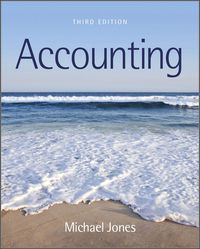Worksheet for Ralph Waldo Emerson's "Self-Reliance" Pre-Writing 1) In your opinion, what does it mean to be self-reliant? (Financial independence can be a part of this, but don't limit your answer to just that.) Do you see yourself as a self-reliant person? Why or why not? 2) In your opinion, what does it mean to be a nonconformist? Explain whether you see yourself as a conformist or nonconformist and why 1) Toward the beginning of his essay, Emerson urges the reader to "Trust thyself" (1). What does he mean by this, and why is it vital (for Emerson) that we do so? 2) Emerson detects admirable qualities in children and young people that contribute to what he calls "the healthy attitude of human nature" qualities most adults no longer share (2). What are some of these qualities, and why are they important? 1 3) According to Emerson, there are "voices we hear in solitude, but they grow faint and inaudible as we enter into the world" (2). What voices is he talking about, and why do they grow "faint and inaudible" as we grow older and enter society? 4) For Emerson, "Whoso would be a man must be a nonconformist. Nothing is at last sacred but the integrity of your own mind" (2). Explain Emerson's position, and whether or not you agree with it 2 of 5 I 5) At one point, Emerson reveals that "I do not wish to expiate, but to live. My life is for itself and not for a spectacle" (3). Define "expiate" What do you think it means to live life "for itself"? Is this the way you live your own life? In considering the relationship between one's individual actions and the opinion of society. Emerson concludes that the great man is he who in the midst of the crowd keeps the perfect sweetness of the independence of solitude" (3). What is the independence of solitude," and why is it so important to Emerson that we achieve/maintain it? 7) Due to conformity, Emerson tells us, most people "hape bound their eyes with one or another handkerchief" (3). What does he mean here, and why does he see it as problematic? Have your own eyes ever been "bound" in this way? 8) In Emerson's view, when you are a nonconformist "the world whips you with its displeasure, and therefore a person "must know how to estimate a sour face (4). Why is the world angry at nonconformists? And why must we know how to hold a "sour face? 9) In explaining why people should not be afraid of contradicting their past words and positions, Emerson proclaims. "A foolish consistency is the hobgoblin of little minds" (4). Note that this is about *foolish consistency, not just consistency. What does this phrase mean, and how does it connect to Emerson's notion of self-reliance"? 10) Toward the end of his essay, Emerson asserts that "To be great is to be misunderstood" (4). Why would greatness and being misunderstood go hand-in-hand? Who are some great figures who have been misunderstood












